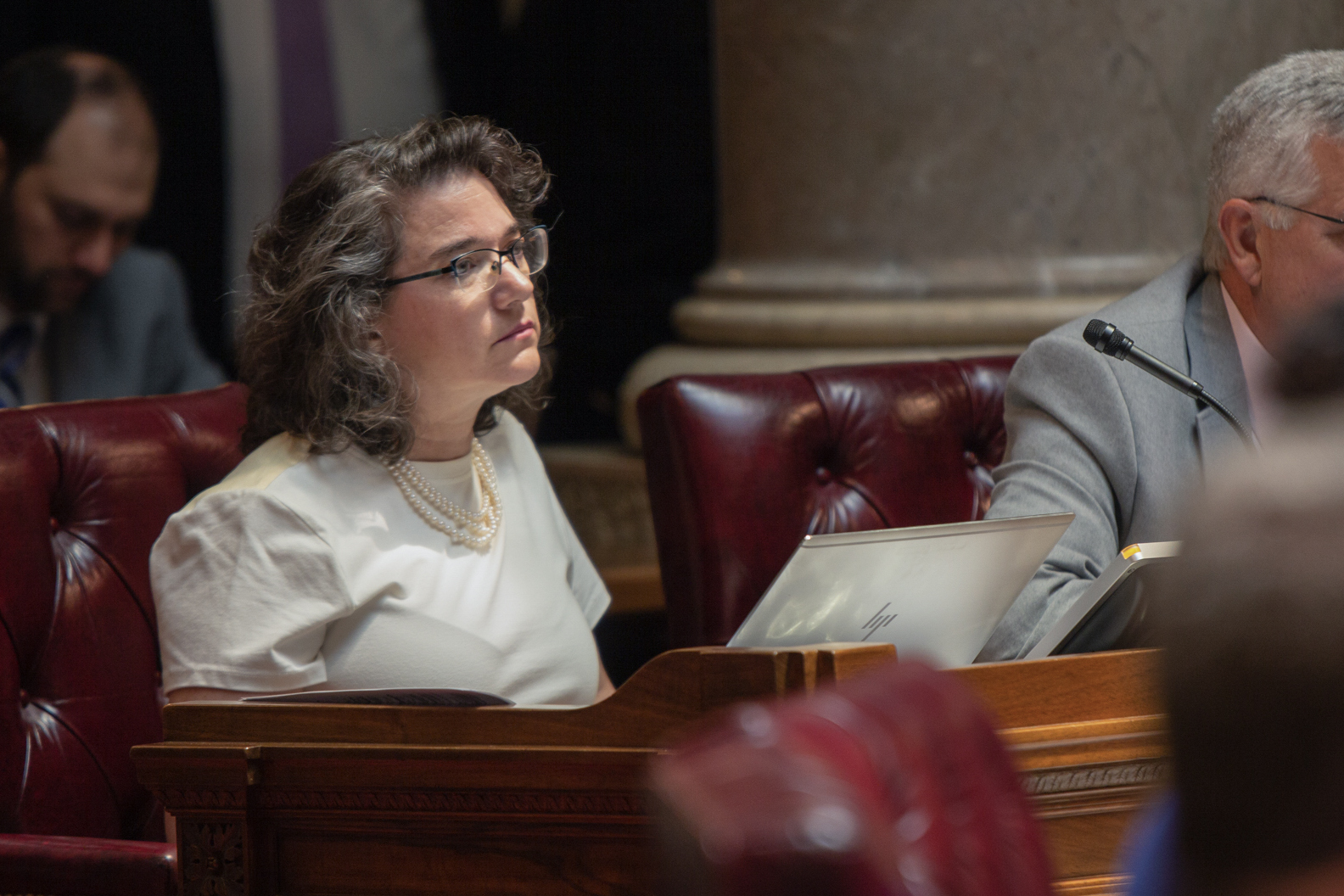Democratic lawmakers say newly unveiled legislation would help media outlets more quickly “slap down” lawsuits that are designed to chill free speech.
More than 30 states have laws guarding against what’s known as Strategic Lawsuits Against Public Participation, or SLAPPs, but so far Wisconsin is not among them.
State Sen. Minority Leader Melissa Agard, D-Madison, says even when such suits lack merit, the intent is to intimidate.
Stay informed on the latest news
Sign up for WPR’s email newsletter.
“The bad actor will sue or threaten frivolous litigation against media outlets, journalists, citizens or anyone with critical coverage or investigative reporting that shows the plaintiff in true colors in an attempt to literally drain resources,” she said.
Bills introduced by Agard and state Rep. Jimmy Anderson, D-Fitchburg, would allow defendants to file a special motion, asking a judge to dismiss a lawsuit that targets free speech rights. The motion would be filed within 60 days of the suit being filed, unless allowed at a later date by the court. That timeline could allow the case to be resolved sooner, before the costly discovery process.
In order for the case to proceed after such a motion, the plaintiff would need to prove their claims have a “probability” of succeeding. If not, the defendant could recoup attorney fees and costs.
The bills’ sponsors say they were inspired by a 2021 lawsuit filed by Mosinee businessman Cory Tomczyk.
Tomczyk, who is a now a Republican state senator, accused the Wausau Pilot & Review of defamation after the online media outlet reported he was overheard using an anti-gay slur while in the audience at a county board meeting. A Marathon County judge dismissed the suit this April, but Tomcyzk is appealing the circuit court ruling.
As a result, the Pilot & Review racked up nearly $200,000 in legal bills — enough to put the small publication in danger of shutting down, said publisher Shereen Siewert.
Earlier this month, the New York Times published an article about the Pilot & Review’s situation, and since then, donations to the pulication have been pouring in. Siewert, who is also employed by Wisconsin Public Radio as the part-time host of a regional talk show, says she no longer fears the Pilot & Review’s imminent closure.
Still, Siewert said policy changes are needed and said the bills introduced Wednesday are a step in the right direction.
“This is not a red versus blue thing,” she said. “This is about fairness.”
Tomczyk’s legislative office did not respond Wednesday afternoon to a request for comment about the bills, which are now being circulated for additional sponsors. He “unequivocally denies” using the slur at the Marathon County meeting, his attorney says.
Wisconsin Freedom of Information Council President Bill Lueders said he hopes Wisconsin legislators can summon bipartisan support for the anti-SLAPP bills, just like the Legislature did when it passed a law in 2010 to shield journalists’ confidential sources from disclosure.
“Now it needs to pass a bill to (protect) news organizations that publish stories in accordance with well-defined legal standards to prevent them from being sued into oblivion,” said Lueders, who advocates for open government as the leader of the nonpartisan council. “The defense of transparency is not a partisan issue.”
Wisconsin Public Radio, © Copyright 2025, Board of Regents of the University of Wisconsin System and Wisconsin Educational Communications Board.






